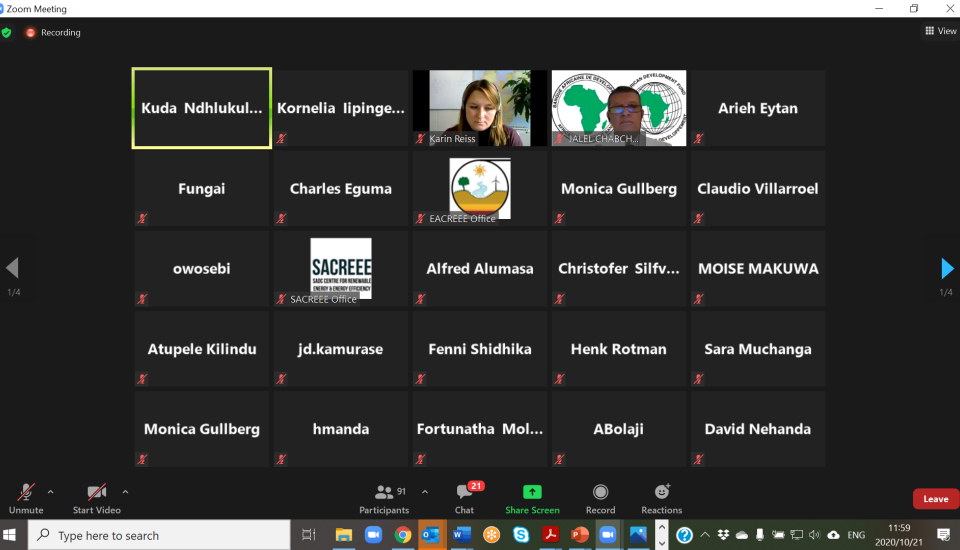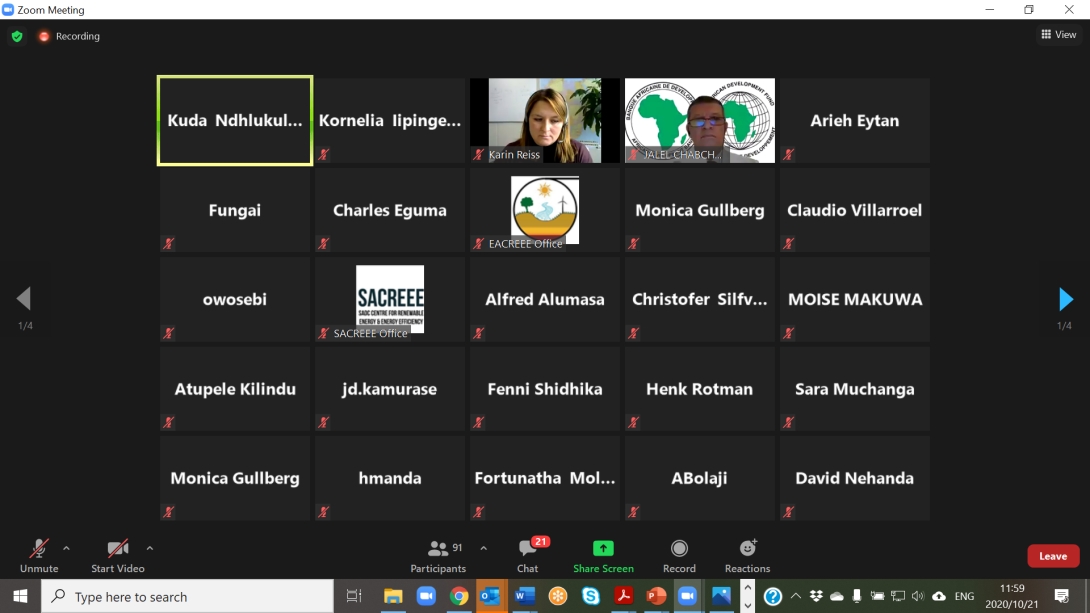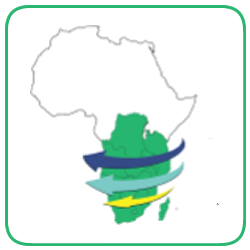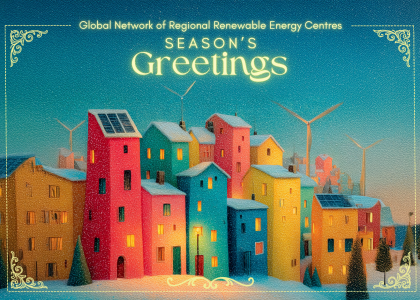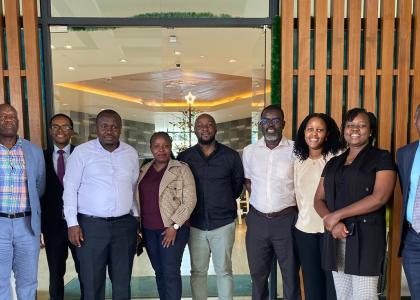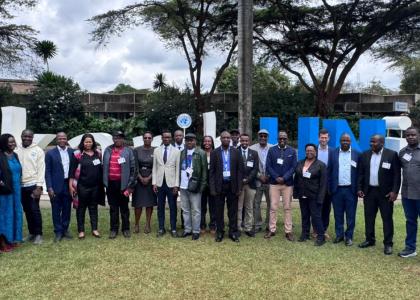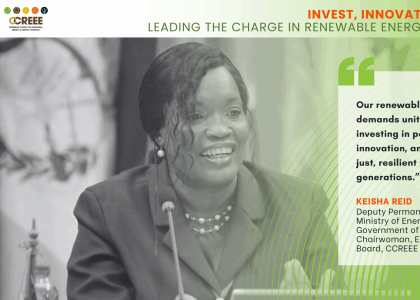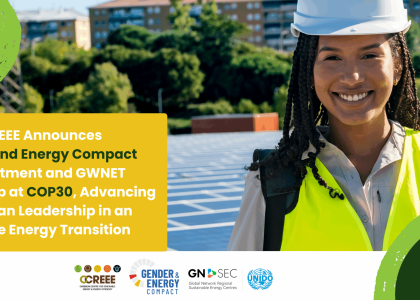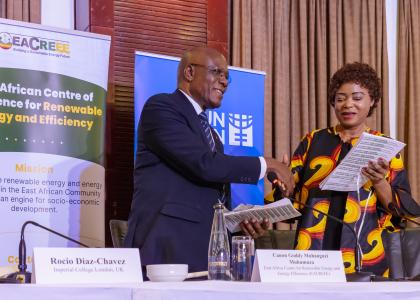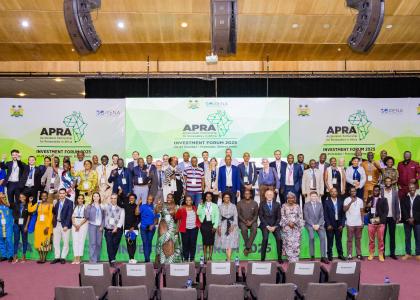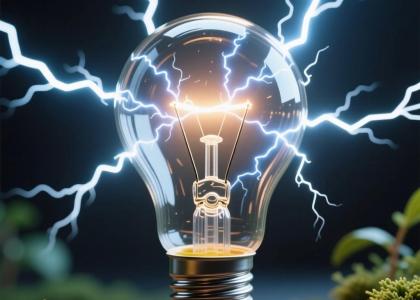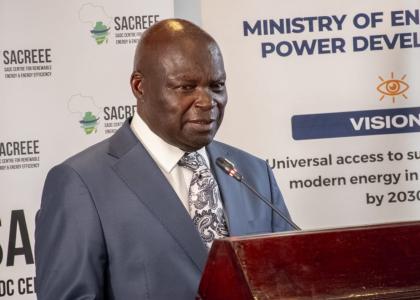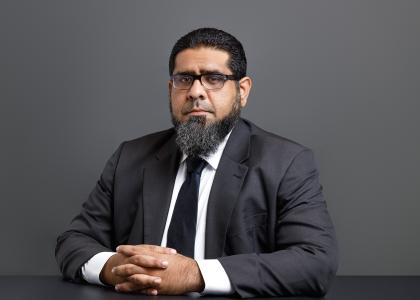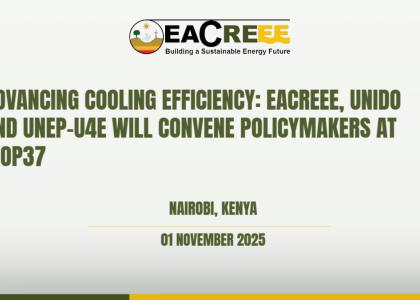Private sector engagement is crucial in accelerating the adoption of energy efficient lighting and appliances and ensuring sustainability. Energy users from both, the public and private sectors, seeking to make new or replacement investments in efficient appliances and equipment, often face a number of barriers including the high upfront costs of the products, inability to access affordable funding with an appropriate tenure, competing budgetary commitments as well as limited technical skills. Demand for energy efficient lighting and appliances is also low amongst end-users due to limited awareness of the benefits of appliances. On the other hand, supply is also restricted due to limited awareness of the private sector about opportunities in East African Community (EAC) and Southern African Development Community (SADC) Member Countries. This is working against the development of vibrant markets for energy efficient appliances and services in the two regional blocks.
To address information asymmetry issues in the market; the EELA project partners are organising a webinar-series to showcase opportunities and lessons learned on how to achieve a market transformation in lighting and appliances in the EAC and SADC regions. As part of the series, a webinar on the opportunities for private sector participation in the sector was held. This webinar took place on 21st October 2020 and brought together more than 100 attendees from local, regional, and international companies, financial institutions, utilities, Non-government Organisations, government institutions as well as other international developmental organisations. The webinar discussed issues around models that can be applied by ESCOs such as Energy Performance Contracting (EPC), equipment leasing, Lighting as a Service, and Cooling as a service.
The participants were informed about technical and financial support which is available within the EELA project framework. EELA is soon to launch an Expression of Interest through which direct technical support will be provided to energy appliance users to prepare bankable energy efficiency project proposals while energy service suppliers will be eligible to receive grant funding that will go towards reducing the capital costs of implementing energy efficient lighting and appliances projects. The African Development Bank representative spoke about a continent-wide project aimed at setting up and supporting super ESCOs that will spearhead the development of markets for energy efficient products and services. The Development Bank of Southern Africa is developing a program aimed at financing energy efficiency projects in Southern African countries.
The challenges and opportunities available in the markets for energy efficient lighting and appliances in EAC and SADC regions were shared. These included opportunities in the municipality, industry, agricultural and commercial sectors. The private sector can offer opportunities aimed at overcoming key barriers in the sector including the high upfront costs, lack of appropriate funding and skills. Various business models are successfully being adapted by the private sector to address these challenges and these include energy efficient equipment leasing, energy performance contracting, Cooling as a Service and Lighting as a Service.
Financial institutions spoke about the challenges of getting good fundable project proposals and the difficulties of selling energy savings as a source of income while energy service providers felt financial institutions did not fully understand the sector.
Among the speakers were Fungai Matura – Private Sector Specialist for the EELA project, Soumya Prasad Garnaik - Executive Director of Energy Efficiency Services Ltd (EESL), India; Arieh Eytan - Chairman & CEO of Unique Technology; Kelvin Odhiambo - Director and Chief Technical Officer of Icopower Kenya Limited; Jalel Chabchoub - Chief Investment Officer of African Development Bank; and Tsitsi Musasike - Principal Deal Originator of the Development Bank of South Africa.
"The business model that we present to our customer or prospective customer is one that relieves the responsibility to invest. We do both, the implementation and financing. When we come to a facility, we do thorough feasibility studies, design solutions, and implement the project at our cost. How we get remunerated is through shared savings" said Kelvin Odhiambo - Director and Chief Technical Officer of Icopower Kenya Limited.
ESSL presented the successful UJALA business model and the market transformation in India where a super ESCO was created to support the development of the energy efficiency sector. The program focuses on creating markets for energy efficient domestic lights. The program mobilises financing, conducts bulk procurement of energy efficient lights, sets up a pay as you save structure that allows users to pay for the lights over an agreed time period and manages all the energy service suppliers involved in the program. The program has led to the distribution of 2 million lights, mobilised over USD50million and achieved energy savings of 360million kW hours per annum.
The discussion received massive interest from participants, and they expressed their interest to get engaged in the EELA project. There was a point raised by participants on the great need to sell energy efficiency (EE) to commercial banks because their argument is that EE projects are not bankable. It would be great to know how well this can be sold to them. Awareness raising amongst the key stakeholders was also one of the issues highlighted for scaling up the usage of EE products.
For more details and presentations please click here.
Further links:
https://www.sacreee.org/content/eela-private-sector-engagement

